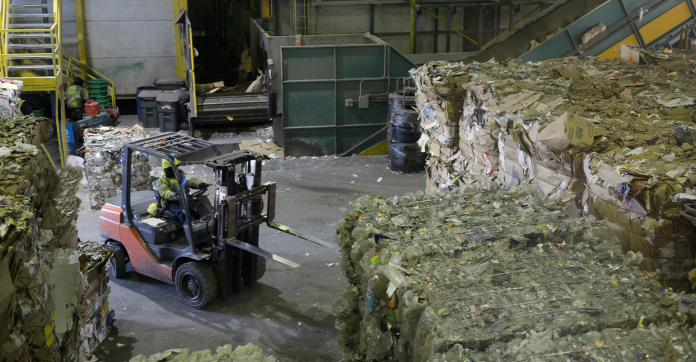WASHINGTON (Sept. 13, 2023) – Today, the U.S. Environmental Protection Agency (EPA) announced more than $100 million from President Biden’s Investing in America agenda to expand recycling infrastructure and waste management systems across the country, representing EPA’s largest recycling investment in 30 years.
EPA has selected 25 communities to receive grants totaling more than $73 million under the newly created Solid Waste Infrastructure for Recycling funding opportunity. In addition, the agency is making available approximately $32 million for states and territories to improve solid waste management planning, data collection and implementation of plans.Â
The grants support the implementation of EPA’s National Recycling Strategy to build an economy devoted to keeping materials, products, and services in circulation for as long as possible – what’s known as a “circular economy.â€
“President Biden’s Investing in America agenda tackles our most pressing environmental challenges including climate change and lead in drinking water, and today we add another historic investment to better manage waste in communities across America,†said EPA Administrator Michael S. Regan. “By investing in better recycling, EPA is deploying resources to provide recycling services across the country, including in disadvantaged communities, while preventing waste that contributes to the climate crisis, supporting local economies and creating good-paying jobs.â€
“Recycling helps us protect our environment while creating jobs and promoting economic growth,†said Senator Tom Carper, Chairman of the Senate Environment and Public Works Committee. “Thanks to the Bipartisan Infrastructure Law, this unprecedented investment will provide communities across our country with the opportunity to improve their recycling programs and implement more sustainable waste-management practices. I applaud EPA for the hard work in getting this funding out the door, and I look forward to working together to advance policies that strengthen our nation’s recycling infrastructure.â€
President Biden’s Investing in America agenda, a key pillar of Bidenomics, is growing the American economy from the middle out and bottom up – from rebuilding our nation’s infrastructure, to driving over $500 billion in private sector manufacturing and clean energy investments in the United States, to creating a manufacturing and innovation boom powered by good paying jobs that don’t require a four-year degree, to building a clean-energy economy that is lowering energy costs for hardworking families, combatting climate change and making our communities more resilient.
EPA’s Solid Waste Infrastructure for Recycling Grant Program is also advancing the President’s Justice40 Initiative, which aims to ensure that 40% of the overall benefits of certain federal investments flow to disadvantaged communities that are marginalized, underserved, and overburdened by pollution. Approximately $56 million out of the $73 million – or 76% – of the total funding for communities will go toward projects that benefit disadvantaged communities.
Solid Waste Infrastructure for Recycling Grants for Communities
The recycling grants for communities will support improvements to waste management systems across the country and will range from $500,000 to $4 million per grant. Selected projects include purchasing new fleets of recycling collection vehicles and bins to provide curbside recycling services for communities currently lacking access; upgrades to material recovery facilities to reduce contamination; enhancements to composting and organics programs and infrastructure; and construction of various types of facilities that improve recycling, composting, and reuse infrastructure for materials such as plastics and food waste.Â
Solid Waste Infrastructure for Recycling Grants for States and Territories
The recycling grants for states and territories will provide funding to all 56 states, territories, and the District of Columbia via grants ranging from $360,000 to $750,000; with the highest grant amounts supporting those states and territories that need it the most. These grants represent important steps toward achieving the EPA’s National Recycling Goal and Food Loss and Waste Reduction Goal. Funded activities include improving post-consumer materials management programs through developing or updating solid waste management plans and strengthening data collection efforts.




